
You're never more fulfilled and productive than in an environment that makes sense to you.
François-Charles, what's your background?
I am a 2015 PGE graduate, specializing in DSCG. I did my work-study in management control at Airbus. Then, I joined KPMG as a financial auditor, major accounts in the industrial sector, in Paris, for 4 years. This gave me a technical and general grounding in corporate finance. I then felt the need for a change, and after a skills assessment, my professional aspirations were to work in a sales role, with human contact and a sense of purpose. I started a second life in an American recruitment agency, for 4 years. Finally, I wanted to free myself and become an entrepreneur.
Over the past 2 years, I have set up Berthois Conseils,a firm with 3 main areas of activity: recruitment for third parties specializing in finance, financial department structuring consultancy for VSEs/start-ups and career management & job search coaching where I help job seekers identify their personal drivers to create professional stories that work.
With the pandemic, the climate crisis, the war in Europe, the world situation has objectively changed a lot. Do you sense a recent change in job applicants' expectations and priorities?
I think there are three external factors that have contributed to the change in candidates' perception of the job market. Firstly, the Covid period, with its corollary, the war for talent and its increasing scarcity, has enabled people to speak out in a changing relationship to work. The previous generation was brought up to see work as the core of their life project. For the new generation, work is simply a means to self-fulfilment. What's more, with the balance of power shifting in favor of candidates, the subject of benefits is more quickly put on the table: salaries, telecommuting, collective bargaining agreements, various perks, etc.
Nowadays, thanks to the widespread availability of information, candidates are very well informed about professions, companies and teams. Information is more fluid, accessible and transparent. The second factor is inflation: pay scales have changed drastically as a result of this new balance of power in favor of candidates. This change is also characterized by situational and status changes. For example, in accounting in the 90s , you could start your career as a temp, looking for a variety of jobs, companies and apprenticeships.
Candidates are more sincere: paradoxically, they promise they won't be faithful.
Today, this principle of a short professional cycle is applied through permanent contracts. Employees leave their permanent contracts after 6 to 18 months, as soon as they feel they have completed a professional cycle and have learned what they need to know. This leads to a change in the job market, with the company needing to organize itself accordingly. Let's go back to our example: on a temporary contract, the end date was predefined and the company organized itself accordingly; on a permanent contract, this is not the case, and it can lead to disorganization. Last but not least, there's an underlying trend towards uberization: many people are looking to become self-employed entrepreneurs, consultants or interim managers. However, there is a limit and a glass ceiling, and we're approaching a maximum take-up rate.
What expectations and promises do they put forward to the company in the interviews you conduct?
Candidates are more sincere: paradoxically, they promise they won't be faithful. They join a company that meets their criteria: personal life balance, salary, skills development... The day these criteria are no longer met, they leave the company. They're upfront about the subject, they're free to speak their minds, and it's a given from the outset. They give to the company if, and only if, there's a return. An anonymous study shows that salary remains the number 1 criterion for candidates in their choice of career.
People have tried to convince us that inclusion, diversity and equality policies are turning decisions around, but the real judge of peace remains salary, especially in times of inflation.
Are companies finding it difficult to recruit in your sector?
Whatever the sector, the subject of recruitment is omnipresent. Talent is the raw material that enables a company to change category, and unfortunately in France we still suffer from a mismatch between job supply and demand. The business world is characterized by inertia.
Salary remains the real justice of the peace, especially in times of inflation.

Company time is not the same as candidate time. To reduce the gap and gain in flexibility, companies are investing in the automation of certain HR tasks: recruitment, personnel administration, payroll, training... They are implementing tools to identify and retain "golden talents" internally.
The structures that have understood that the rules of the game have changed and are trying to adapt are in the minority. Most of them maintain archaic processes, believing that they retain full negotiating power during the recruitment phase.
Does finance have its own world and its own rules? Do the new generations still readily embrace this sector with its own model?
The finance function has evolved over the last few years, and more is expected of the person who carries it out, particularly as a business partner. The finance function is now expected to step out of its ivory tower and influence sales. As a result, it is becoming even more important. Jobs are being decompartmentalized. Another factor is the many technological developments that have transformed the sector: the introduction of automation, robotization and the role of AI in finance.
If you want to work in finance, you'll need to know a thing or two about data management. For the new generations, work-life balance has become important. Historically, a deal was struck for certain top jobs: the junior would work 80 hours a week, but would receive a salary 1.5 to 2 times higher than the average. Today, many refuse, and we're seeing 2-3 year cycles instead of 5 years. They will capitalize on this experience and resell it in a corporate environment, for example.
How do you see your job today, and what added value do you stand for?
You're never more fulfilled and productive than in an environment that makes sense to you. You deliver more in a job you're passionate about.
I encourage candidates to be pro-active in their job search, not to be subjected to ads, headhunters and processes. You have to take the initiative in your job search: find out about the team, the company, challenge the people you meet during interviews, create your own opportunities and demonstrate your added value, especially in support functions.
I encourage candidates to be pro-active in their job search, not to be subjected to ads, headhunters and processes.
You've chosen to set up your own business after working in large organizations. What does this say about your own expectations of work?
The big structures gave me a lot, and I'm grateful to them for that. It helped me form my own opinions. You can only recruit people for jobs you understand. Today, I work in a job that makes sense to me, in line with my values of expertise, excellence, honesty and transparency. Agility is helping my business and my offering (consulting, coaching) to evolve, and enabling me to take on subjects further upstream to create more value for customers.
This sets me apart from my competitors. I'm able to develop my own vision of recruitment, with a consulting dynamic that's far superior to the traditional offer. My ambition is to create a benchmark boutique for financial recruitment, with clear, established processes.





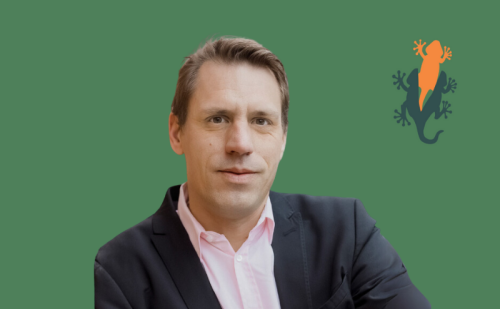
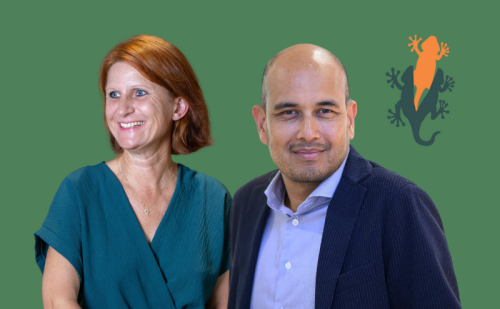

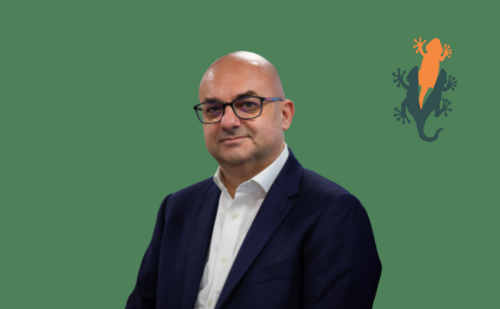
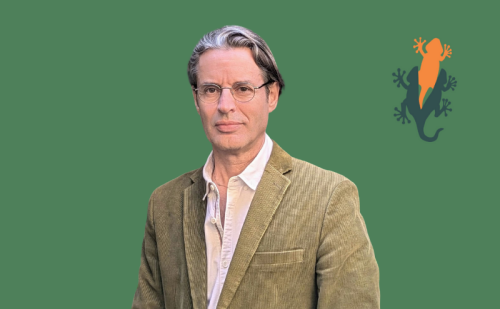


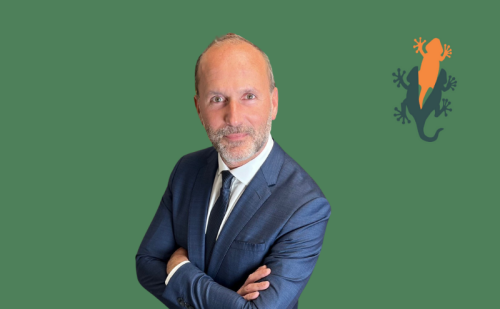





No comment
Log in to post comment. Log in.